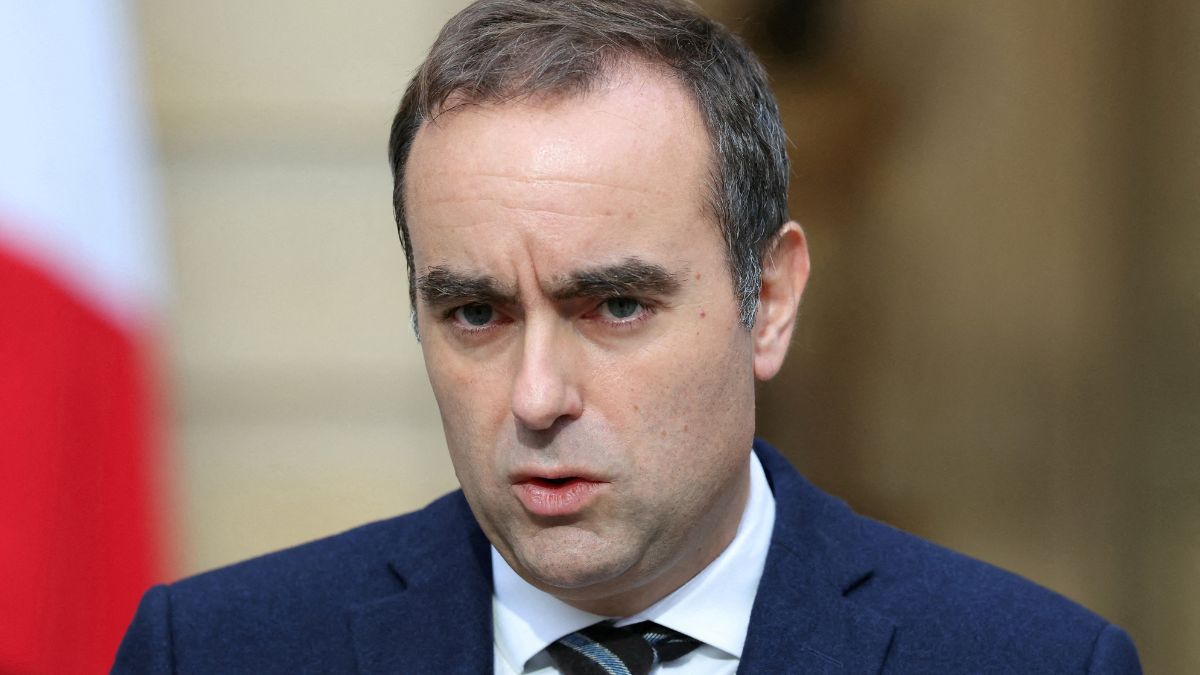France has seen seven prime ministers since May 2017. Sebastien Lecornu, the latest PM under President Emmanuel Macron, has resigned just a month after his appointment.
The surprise resignation came just hours after he announced a new Cabinet on Sunday (October 5), making it the shortest-lived in modern French history. Lecornu’s exit has laid bare France’s political crisis and put pressure on Macron.
We take a look.
France’s new PM steps down
France’s new Prime Minister Sebastien Lecornu and his government resigned on Monday (October 6). With just 27 days in office, he became the shortest-lived prime minister in modern French history.
“Mr Sebastien Lecornu has submitted the resignation of his government to the president of the republic which he accepted,” the French presidency said in a statement.
Lecornu had named a new Cabinet, retaining most high-profile figures in their posts, 14 hours ago. The ministers were set to hold their first meeting on Monday afternoon.
However, the new Cabinet lineup was criticised by opponents and allies alike, who either found it too right-wing or not enough so, as per Reuters.
The new PM faced the ire of the opposition parties across the political spectrum, which threatened to topple his government in a parliamentary vote of no-confidence. Senior figures of the centre-right Republicans called for the party to quit the coalition government.
Conservative Bruno Retailleau, who will remain as interior minister, denounced the new government, saying that it “does not reflect the promised break”.
Lecornu blamed political parties’ stubbornness for his resignation during a public address on Monday morning.
“I was ready to compromise, but each political party wanted the other political party to adopt its entire programme,” he said in a speech in the courtyard of Matignon Palace, the PM’s headquarters, as per France24.
“The conditions were not fulfilled for me to carry out my function as prime minister,” the outgoing PM said in a statement, condemning the “partisan appetites” of factions who he said forced his resignation.
The Paris stock market had slipped by more than 2 per cent by around 0800 GMT (1:30 pm IST) after the announcement.
France’s 7 PMs in 8 years
In early September, French President Macron appointed Lecornu as the seventh prime minister of his presidency. Lecornu, a close ally of Macron, came to power after his predecessor, François Bayrou, was ousted in a vote of no-confidence after nine months in office.
Michel Barnier, also 74, was Bayrou’s predecessor, who lasted only three months. Both were ousted by the Assemblée Nationale due to a rift over the spending plan.
Elisabeth Borne and Gabriel Attal had preceded the two as France’s prime ministers.
The French politics have been unstable since Macron’s re-election as president in 2022. In the parliamentary elections held later, Macron’s centrist party failed to bag a majority, leaving a hung parliament.
Five of seven PMs under Macron have been appointed since his re-election in 2022. Edouard Philippe and Jean Castex are the only ones who served as France’s PMs during his first presidential term.
In a move aimed at bolstering his authority, Macron called a snap parliamentary election last year. The move backfired, leading to a more fragmented parliament.
What would Macron do now?
Lecornu’s resignation has deepened France’s political and economic crisis. The former defence minister had a tough task of gaining approval in a fractured Parliament for an austerity budget for next year.
With Lecornu gone, Macron’s woes are set to increase. Some political leaders have already started calling for him to step down, but he has earlier resisted such demands before his mandate ends in 2027.
Marine Le Pen’s far-right Rassemblement National has called for holding polls. “Macronism is dead on its feet,” the party said in a post on X. “Macron must now choose: dissolution [of the Assemblée Nationale] or resignation, and quickly!” it added.
Le Pen Monday urged snap parliamentary elections, saying a “dissolution (of parliament) is absolutely necessary”. She also added that it would be “wise” for President Macron to resign.
Jean-Luc Mélenchon, the leader of the radical-left La France Insoumise (LFI) party, called for bringing a motion to remove Macron from office. Mathilde Panot, a prominent LFI member, also called on the French president to quit. “The countdown has begun. Macron must go,” she said, in a post on X.
The far-left France Unbowed also demanded Macron’s departure. Some voices on the left also suggested reviving a coalition comprising leftists, socialists, greens and communists.
National Rally President Jordan Bardella pressed Macron to dissolve the National Assembly following Lecornu’s resignation. “Stability cannot be restored without a return to the polls and without the dissolution of the National Assembly,” he said, as per France24.
Lecornu’s move will put immense pressure on Macron, who has now installed three failed minority governments.
The French president, who is unlikely to resign, could appoint a new prime minister, who is also expected to struggle with the same deeply divided National Assembly.
If Macron resigns, it would be unprecedented under France’s Fifth Republic, established by Charles de Gaulle in 1958.
Not just political instability, France is also staring at an economic crisis. The European country reported a budget deficit of 5.8 per cent in 2024. France’s public debt has reached a record high, according to official data last week. Its debt touched 113 per cent of GDP last year. This debt-to-GDP ratio is now the European Union’s third-highest after Greece and Italy, surpassing the bloc’s rules that the public debt of the member nations should not be over 60 per cent of economic output.
Macron’s resignation would be the worst-case scenario for France’s financial markets, John Plassard, partner and head of Investment Strategy at Cite-Gestion, told CNBC.
“I don’t think he wants to do that, but I think that would be the worst for the market because I don’t think the Socialists or even the far right in France wants to govern this country actually, they want to wait for a [new] election,” he said.
As per Bloomberg, Barclays analysts predict that Macron stepping down is “unlikely”, while parliament elections could be on the cards.
With inputs from agencies
End of Article

)

)